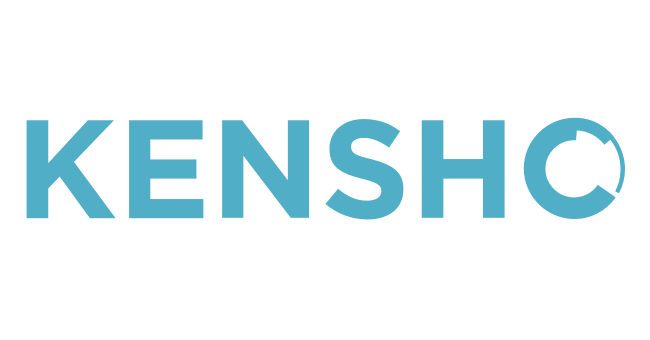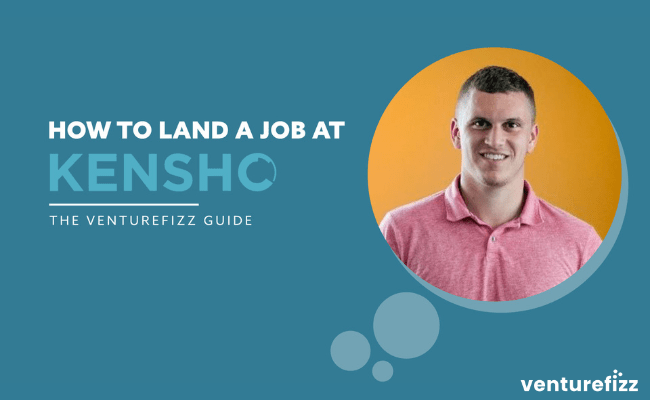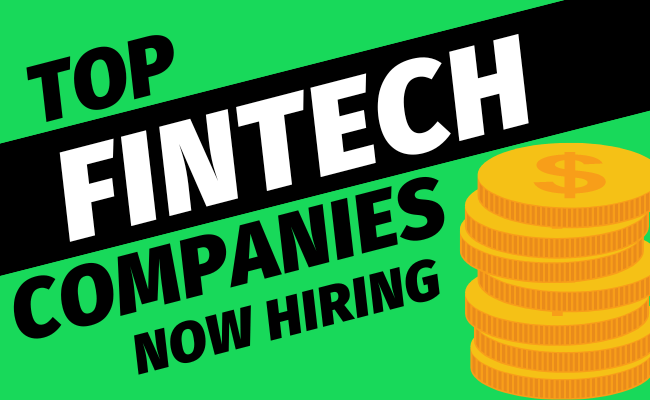About Kensho and what they do
Kensho's vision is to structure the world's unstructured data. The world is overflowing with more and more data. And we estimate that 90% of it is unstructured. And so we try to help in three different ways. One is to create foundational AI solutions to ingest clean link tag, and categorize data in a way that's optimized primarily for business and financial use. Then we take these low level, low level capabilities, and develop them into a cohesive AI toolkit. And we want to really accelerate building AI solutions for individuals, for companies or businesses, for governments, and even for ourselves. So the last thing that we do is we provide tools on top of this AI toolkit that enables users to make fact based decisions about the data that they have in order to make these insights better discoverable.
Jordan's professional background
So I went to Harvard for music and computer science, actually dropped out to start a couple different businesses. One was a tech startup. And the other was a video production business that was meant to pay the bills. Shortly after that, I joined Kensho, about four and a half years ago, as a front end engineer, became the team lead of that front end team dipped my toes a little bit back into academia by creating and teaching a college course, around building mobile apps. And then about two and a half years ago, I became the head of Kensho applications. And I'm now the head of the AI toolkit team. So my journey at Kensho was an engineer, then a team lead, and then the head of one of the engineering divisions.
Details on Kensho's engineering team
So Kensho has an 80 or 90 person engineering team, were led by our wonderful CTO, Melissa, and five engineering heads, we call them. I talked about our vision a little bit earlier. And our engineering team is organized in a way that tries to best amplify the strengths that we need in order to achieve Kensho division. And so we have a set of engineering teams that own each of the aspects of our vision. So I talked about building foundational capabilities. And the ML team is the one who starts to build those ml models, which are themselves those foundational capabilities. Then we have the goal of Kensho to develop these capabilities into a AI toolkit. And our AI toolkit team headed by myself, takes these ml capabilities or builds new software capabilities of our own, and turns them into a cohesive toolkit of AI services. And then we have a data discovery team, which takes on that last aspect of Kensho's vision, which is building on top of the toolkit to make additional tools that make data insights discoverable. And then we have a couple other horizontal teams that provide support across the org so we have an infrastructure team, similar to most other companies that makes it easy for us to interface with our cloud, provider, AWS, and all the different services that we own, including Kubernetes, and all of the various monitoring and alerting, and all of the observability tools, databases, and so on. And then lastly, we have an architecture team, which has a bunch of individuals that collaborate alongside project teams to help find solutions to the more complicated problems. There are a lot of places in Kensho, where you can start to learn a lot about what you what you specialize in, start to specialize in something and start to provide a bigger and bigger impact. A lot of what we think about at Kensho is, How can any engineer provide an impact that is greater than just themselves. So someone can do a unit of work and provide a unit of work in the end. Or they can provide a unit of work that solves a class of problems or that solves a problem that a bunch of other engineers are running into and all of a sudden their impact is greater than the just the individual at a team level. And as you start to have more and more influences, you start to have bigger impact Kensho, then we start to to set you up for larger and larger successes. So as you start to increase your potential, we tried to help you reach that potential and tried to help you leverage the skills that you built to provide the largest impact possible. And so for me, that meant going and starting to manage a team of people and then manage a team of teams of people. Because the specialties that I was building up in the knowledge that I was building up was all around leadership and how to make teams successful. But on the engineering side, a lot of engineers start and enter the company just to learn about what we do first and then start taking on tasks and then start taking on features and then start taking on problems. So how does a client how do we solve a particular problem that one of our clients has Which then turns into features and turns into tasks. And so we start to build larger and larger impact as you start to level up your skills. And we try to provide a lot of resources to people to level up those skills so that everyone can start performing at that high level.
About the tech stack they use and cool projects engineers get to work on
So our front end team, uses TypeScript, react. And all the multitude of modern tools, we stay very modern there, and try to be cutting edge where it makes sense. So we're not forcing ourselves to be modern, we're just using the tools that solve all of our problems. Everywhere else in the org, we use Python. And the multiple tooling that exists with the Python ecosystem. On the infrastructure side, we run everything on top of Kubernetes, we deploy using an in house library, where we call it Kensho deployed, or KD for short, which handles all of the complicated parts of Kubernetes. So we mostly just get to reap the benefits. And then, yeah, feel free to talk to me or send an email to me if you want more information. But the general high level thing about Kensho is, we love making our own jobs easier. in ways that makes sense so that we can focus on the fun parts of our job. So the tech stack that we use, tries to eliminate the the boring parts, and lets us focus on what is interesting.
What to expect during the interview process
First up is a phone screen. Generally, a couple days later, you might get a practical, depending on your performance on the practical, you may be invited for a final round interview. And then generally a few days to a couple of weeks after that, then you have a call with an engineering leader like myself or our CTO or the other engineer. Interviewing at Kensho is a lot of fun, in my opinion, we try to talk to you about the skills that help you succeed at Kensho. And so we don't try to trick you, we don't try to exhaust you, we try to just see how well you would fit alongside Kensho as a team we are very proud of our nerdiness. We love jumping into problems. We love talking engineering. And we try to create an interview process that really dives into those aspects. And so generally what happens first is you apply, I would encourage everyone watching this video to apply to kensho. It's a really fun place to be. We then check out your resume and you'll get to hear about what working at Kensho like in an intro call with our recruiting team. They'll tell you all about what Kensho does our projects. And then from there, you hop into our first round phone interview. And so this is with an engineer, you talk a little bit about your background, you'd get to hear a little bit more about what working at kensho is like from engineer and engineering perspective. And then we dive into a technical problem. Again, these aren't technical problems where we're trying to trick you or we're trying to show off how hard our technical problems are, but rather something that allows you to show off to us how great you would be at Kensho. And so we tried to have problems that are inspired by things that we actually do. From there is the final round interview. This is the interview where you talk to a bunch of other Kenshans. And to get to know a lot more at the lower level, what working at kensho is like one of these interviews is actually solely focused on work at Kensho. And the way that we like to work in the way that you'd like to work to make sure that Kensho would be a very exciting place for you to join. Because the last thing that we want is for you to think that kensho is something that it actually isn't. And so we try to have very open and honest conversations, that's one of our core values that Kensho so that you your expectations are set accurately. We also have generally around three technical interviews similar to the phone screen that tests different aspects of what is important for success at Kensho for different teams, that means different questions. For my team. Generally, that means system system design questions and general coding questions, algorithms or data, data structures, questions where the data structures are inspired. But again, by things that we actually do, we don't expect that you know, a bunch of theoretical things that aren't useful for the job we, we try to tune the questions to things that engineers actually face day by day at Kensho and then one thing that sometimes happens depending on which team you're joining is practical. So I call this a practical not a coding exercise because it's it tests your practical knowledge of things that people do on the job. So this is a take home exercise, depending on the team. There are different links. Generally, it's somewhere between one and three or four hours. And in my opinion, it's a lot of fun. I actually wrote the first iteration, the second iteration and the third iteration of the front end one again, have different questions, different practicals for different teams, and depending on which team you're joining, you may have a different practical or no practical at all. And then lastly, you hop on a call with me or one of the other engineering leaders to go over any high level questions you have about kensho anything more on the strategic side that you're curious about. And then in that same call, you will receive an offer.
Kensho's Culture
So the culture I can show is very much one where we care about people we care about everyone's personal development, self development, and the development of the professional life of everyone at the company. So we have a few core values, they're posted on our website, they include things like empowerment Go Team inclusion. And what we try to do is cultivate an environment where everyone's really excited about what they're doing. One, if you talk to a bunch of different people, you'll probably get a bunch of different answers because Kensho the specific cultural aspects about Kensho. resonate slightly differently with everyone. What I found the most valuable at Kensho what gets me excited to come to work or to talk to my peers is our culture around teaching and learning. So we have a lot of people from academic backgrounds, we really love learning, we really love teaching, and we cultivate an environment where that gets to happen. And that's actively encouraged. Once a month, we have what we call a knowledge day where people take a step back from their everyday work and focus an entire day on learning about something that they find exciting. And honestly, almost every day is like that at Kensho for me, I get to learn about what my team is doing, I get to learn about what the company is doing, I get to learn all about the business and strategic things that we want to do. And then I get to apply myself and learn at a deep level about the technologies that we're using. And so I think one of the things that's unique about Kensho is the fact that people are so excited to teach you about what they're interested in. And sometimes that interest goes beyond what they're working on. Like I said, I came from a background in music, we have people who come from all sorts of different backgrounds. And we love chatting about these, we love teaching, we love being humble and asking questions and learning all about what everyone does. And so what gets me excited to get to work every day is just the fact that I get to learn something new.
Why now is the ideal time to join
So I think looking over Kensho's history, this is the first time where we have a real cohesive vision that everyone can get behind. And everyone can start investing in. So we have a lot of exciting projects going on, you can check our website to see the specific things that we're building. But all of them are really pushing the envelope in terms of what's possible. Our speech to text engine is outperforming all of the competitors, even the big names in the field. We're kind of first to market and a lot of the things that are specific to the financial field. And so I think it's really exciting at Kensho now both because we have an exciting suite of projects, which is true in the past as well. But I think now is particularly exciting because we now have that vision. And now we're starting to invest in that vision by creating things like platform teams that can invest in the experience of our developers and the speed at which we can build things and the robustness in terms of what we actually build. And we have an architecture team who has a lot of experience and loves pairing with you on hard problems. And so we're investing in supporting our own people. And we're doing this in a way that gets us toward our vision. And so I think a lot of people are excited about what we're doing both inside and outside of Kensho. And so I think now's a great time to join to help push that vision forward.




